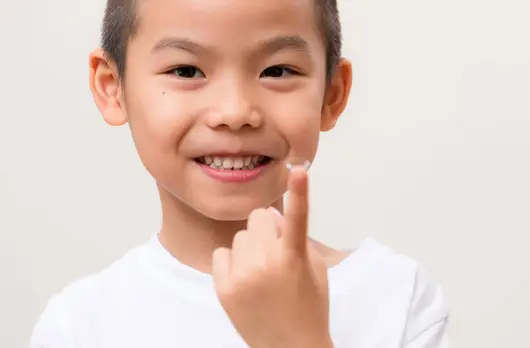Why Myopia Control is Important: Protecting Your Child’s Vision for the Future
As myopia (nearsightedness) becomes more prevalent in children, it’s crucial for parents to understand the importance of myopia control and how it can safeguard their child’s long-term vision health. Myopia control not only corrects vision but also helps slow the progression of myopia, reducing the risk of serious eye conditions later in life. In this comprehensive guide, we’ll explore why myopia control is so important and the treatments available to help manage it effectively.

What is Myopia?
Myopia, also known as nearsightedness, is a condition where distant objects appear blurry while nearby objects remain clear. It occurs when the eye grows too long or the cornea is too curved, causing light to focus in front of the retina rather than on it. Myopia typically begins in childhood and progresses through the teenage years. Without proper management, myopia can worsen over time, leading to the need for stronger corrective lenses and an increased risk of complications.
Why is Myopia Control So Important?
The importance of myopia control lies in its ability to slow the progression of nearsightedness. As myopia worsens, the risk of developing serious eye conditions such as retinal detachment, glaucoma, cataracts, and myopic macular degeneration increases. Managing myopia during childhood can significantly reduce the likelihood of these vision-threatening conditions in the future.
How Myopia Control Works
Myopia control treatments are designed to slow down the eye's elongation, which causes myopia to progress. These treatments include:
- Ortho-K (Orthokeratology): Specially designed gas-permeable lenses worn overnight to reshape the cornea and slow myopia progression. Learn more about Ortho-K.
- Atropine Eye Drops: Low-dose atropine drops are used to slow myopia progression by relaxing the eye’s focusing mechanism.
- Specialized Contact Lenses: Soft contact lenses designed to control the progression of myopia by altering how light focuses on the retina.
- Multifocal Glasses: Glasses with lenses that provide different levels of focus to help reduce the progression of myopia.
The Long-Term Benefits of Myopia Control
Slowing myopia progression during childhood offers significant long-term benefits:
- Reduced risk of eye disease: Controlling myopia early reduces the likelihood of developing serious eye conditions later in life.
- Better quality of life: Children who undergo myopia control treatments are less likely to experience severe nearsightedness, allowing them to enjoy clearer vision and less dependence on strong corrective lenses.
- Preservation of eye health: Myopia control protects the overall health of the eye, preventing issues that arise from excessive elongation of the eye.
Who Should Consider Myopia Control?
Myopia control is recommended for children and teenagers who are experiencing progressive myopia. If your child’s prescription increases every year or if there is a family history of high myopia, they may be a good candidate for myopia control treatments. Early intervention is key to slowing the progression and protecting their vision for the future.
Book a Myopia Control Consultation at G&G Eye Doctors
If you're concerned about your child’s myopia or want to learn more about how to slow its progression, the team at G&G Eye Doctors is here to help. We offer a variety of myopia control options designed to protect your child’s vision and ensure their long-term eye health.